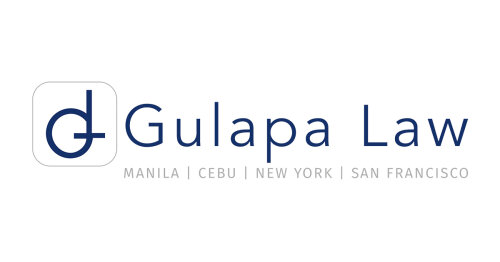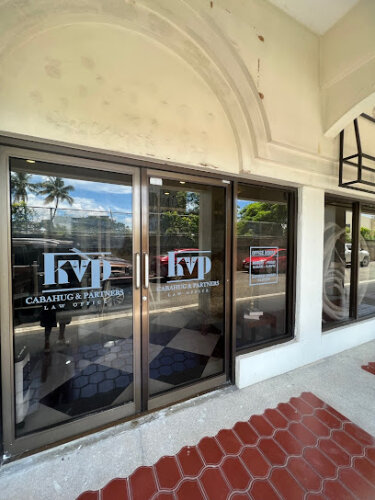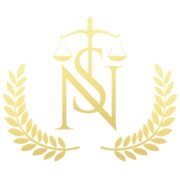Best Antitrust Lawyers in Philippines
Share your needs with us, get contacted by law firms.
Free. Takes 2 min.
Or refine your search by selecting a city:
List of the best lawyers in Philippines
About Antitrust Law in Philippines
Antitrust law in the Philippines, commonly referred to as competition law, is designed to promote fair competition for the benefit of consumers. The primary legislation governing antitrust in the Philippines is the Philippine Competition Act (PCA), enacted in 2015. The law addresses anti-competitive agreements, abuse of dominant position, and anti-competitive mergers and acquisitions. The goal of antitrust laws is to enhance economic efficiency and protect consumer welfare by prohibiting acts that distort market competition.
Why You May Need a Lawyer
There are several situations where you might require legal assistance in matters of antitrust:
- You're a business owner concerned about potentially violating antitrust laws through mergers, acquisitions, or collaboration agreements.
- You suspect a competitor is engaging in unfair competition practices that might harm your business.
- Your company is being investigated by the Philippine Competition Commission (PCC) for potential antitrust violations.
- You are involved in or planning business transactions that could raise competition law concerns, including joint ventures and distribution agreements.
- You need to develop compliance programs to educate your company’s employees about antitrust risks and adherence to the law.
Local Laws Overview
The Philippine Competition Act (PCA) is the backbone of antitrust regulation in the country. Key features include:
- Anti-competitive Agreements: The PCA prohibits agreements with the purpose or effect of substantially preventing, restricting, or lessening competition.
- Abuse of Dominant Position: It is illegal for companies with a dominant market position to use that power to limit market competition unreasonably.
- Merger Control: Certain mergers and acquisitions that meet specific thresholds require prior notification and approval by the PCC to ensure they do not harm competition.
- Enforcement and Penalties: The PCC has the authority to impose fines and require remedies to restore competitive conditions if violations occur.
Frequently Asked Questions
What is the role of the Philippine Competition Commission (PCC)?
The PCC is an independent quasi-judicial body tasked with implementing and enforcing the Philippine Competition Act. Its duties include investigating antitrust cases, reviewing mergers, and imposing penalties for violations.
Who can file a complaint with the PCC?
Any individual or entity can file a complaint with the PCC if they believe an anti-competitive practice has occurred or is likely to occur.
What are anti-competitive agreements?
These are agreements between competitors or businesses at different levels of the production chain that restrict competition, such as price-fixing, market sharing, or output limiting agreements.
How can a business determine if it holds a dominant position?
A business is considered dominant if it has the ability to control prices or exclude competitors, usually by having a large market share or significant power in a specific market.
What constitutes an abuse of dominant position?
Examples include unfairly enforcing predatory pricing, discriminating against different customers, or blocking competitors' market access.
What should a business do before a merger or acquisition?
Businesses should consult with legal experts to determine if their transaction meets thresholds requiring PCC notification and to ensure compliance with competition laws to avoid legal repercussions.
How long does the PCC review process for mergers take?
The PCC aims to complete its review within a standard period of 30 to 90 days, depending on the complexity of the transaction.
What penalties can be imposed for antitrust violations?
Penalties for violating antitrust laws include fines ranging from a percentage of the gross revenues to monetary penalties and possibly imprisonment for responsible individuals.
Are there leniency programs available for cooperating with the PCC?
Yes, the PCC offers leniency programs to encourage companies and individuals to provide valuable information about anti-competitive practices in exchange for reduced penalties.
Can international businesses operating in the Philippines be subject to PCC regulations?
Yes, any entity conducting business activities within the Philippines can be subject to examination under the antitrust laws if their practices affect the Philippine market.
Additional Resources
For more information and assistance, consider reaching out to the following resources:
- Philippine Competition Commission (PCC) - Official body for competition law enforcement.
- The PCC's official publications and guidelines provide insights into how they interpret and enforce the law.
- Private legal advisories specializing in antitrust law.
- Seminars and workshops offered by business organizations on competition law compliance.
Next Steps
If you need legal assistance with antitrust issues, consider the following steps:
- Evaluate your situation and gather any relevant documents related to your case.
- Consult with a lawyer specializing in antitrust and competition law to understand your legal standing and obligations.
- Contact the PCC if you suspect any anti-competitive behavior that affects your business.
- Attend workshops or seminars to better understand compliance standards and legal responsibilities.
- Implement a compliance program within your organization to prevent potential antitrust issues.
Lawzana helps you find the best lawyers and law firms in Philippines through a curated and pre-screened list of qualified legal professionals. Our platform offers rankings and detailed profiles of attorneys and law firms, allowing you to compare based on practice areas, including Antitrust, experience, and client feedback.
Each profile includes a description of the firm's areas of practice, client reviews, team members and partners, year of establishment, spoken languages, office locations, contact information, social media presence, and any published articles or resources. Most firms on our platform speak English and are experienced in both local and international legal matters.
Get a quote from top-rated law firms in Philippines — quickly, securely, and without unnecessary hassle.
Disclaimer:
The information provided on this page is for general informational purposes only and does not constitute legal advice. While we strive to ensure the accuracy and relevance of the content, legal information may change over time, and interpretations of the law can vary. You should always consult with a qualified legal professional for advice specific to your situation.
We disclaim all liability for actions taken or not taken based on the content of this page. If you believe any information is incorrect or outdated, please contact us, and we will review and update it where appropriate.
Browse antitrust law firms by city in Philippines
Refine your search by selecting a city.
















